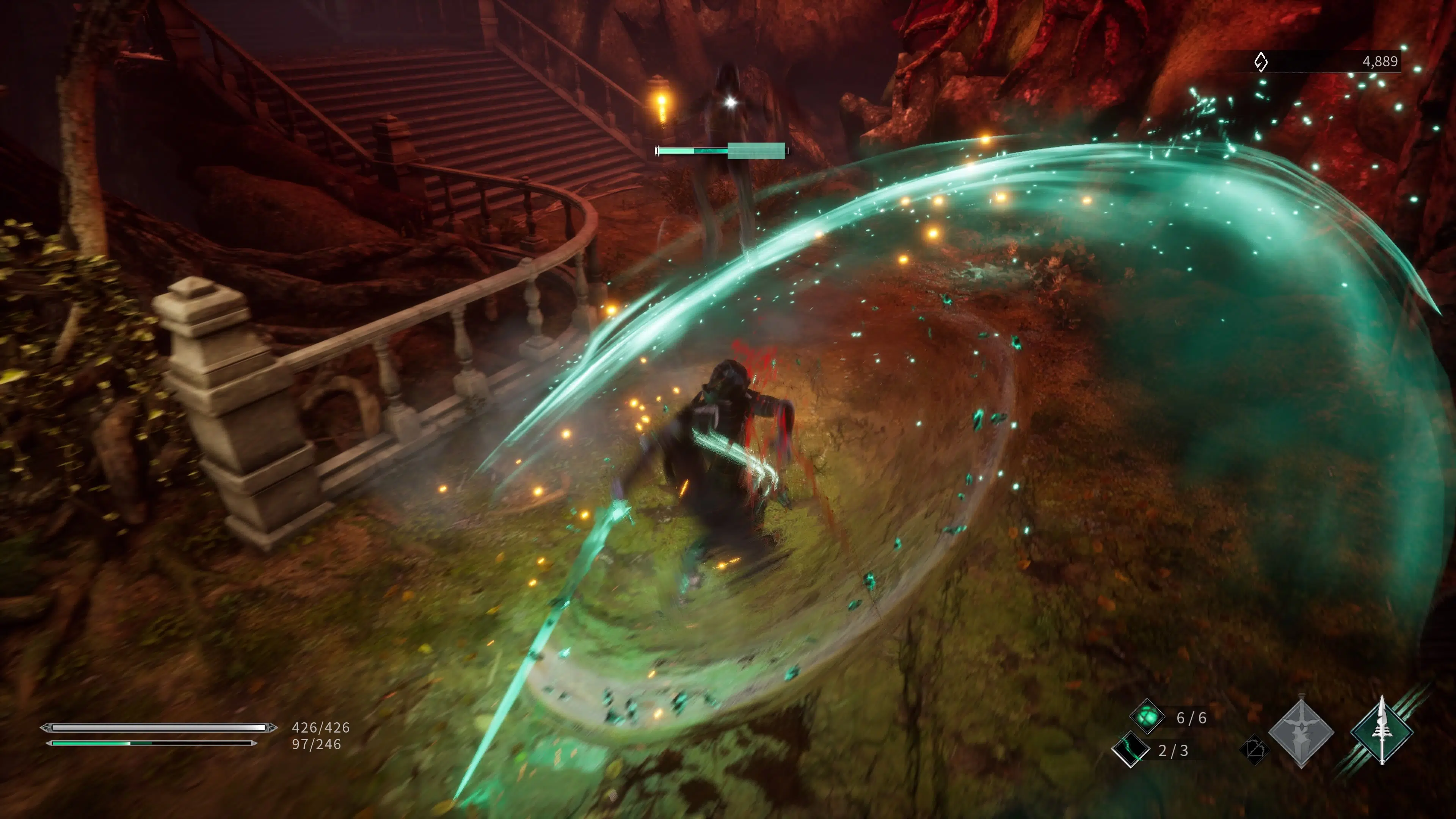We’re full blown into the sub-genre FromSoftware created; the “soulslike.” Generally, this means a game that isn’t developed by FromSoftware but takes a lot of inspiration from their Soulsborne games such as a challenging but rewarding combat, labyrinthian level design with shortcuts, some sort of “bonfire” type checkpoint system, having to retrieve your XP after death, and boss fights.
The latest addition to this burgeoning subgenre is Team17 and OverBorder Studios’ Thymesia. While many games claim to be soulslikes, the games that are truly worth-while are few and far between. Thankfully, Thymesia can be added to the list of Soulslikes that are worth your time.
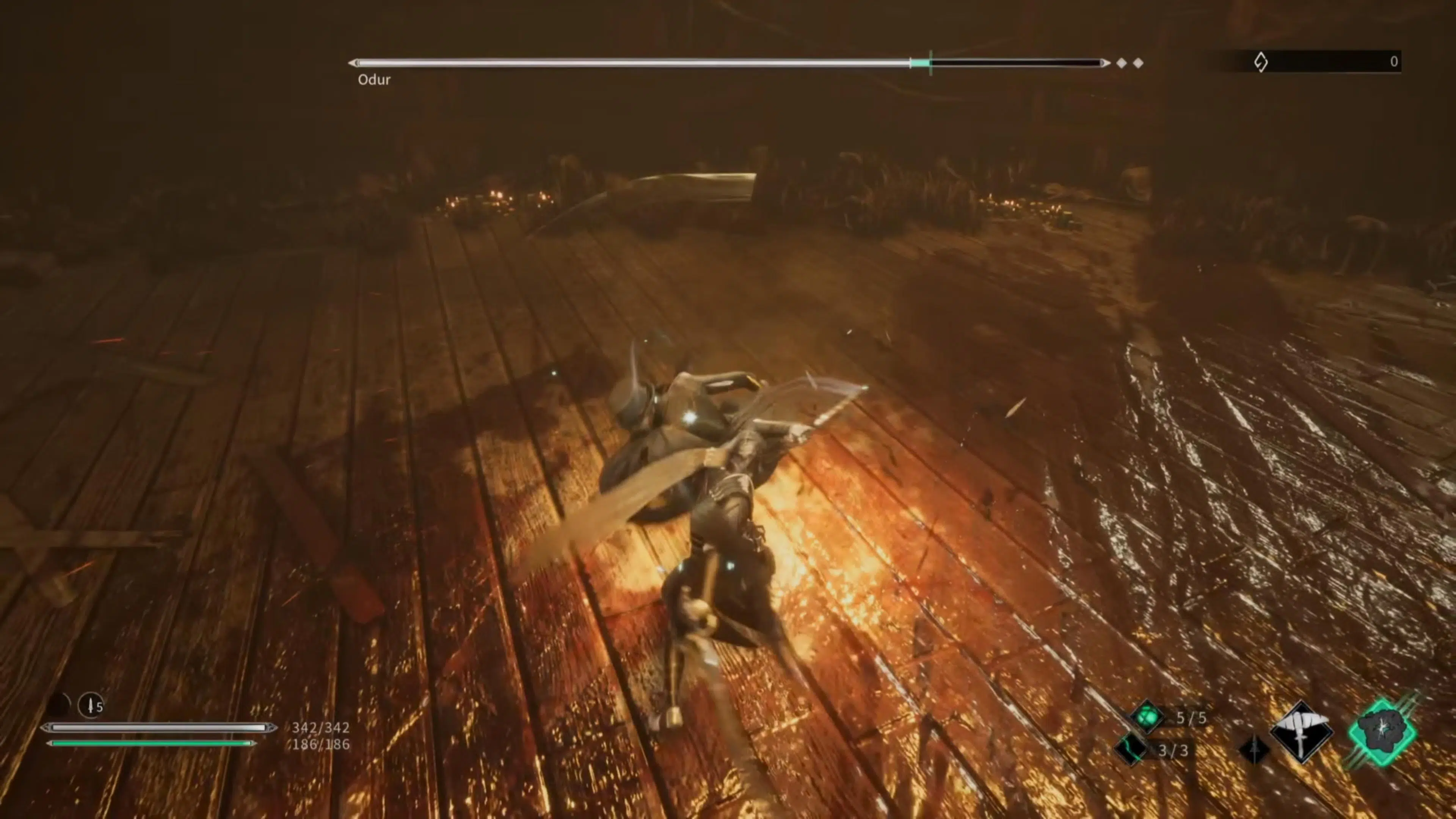
The story, such as it is, is by far the weakest aspect of the game and almost feels perfunctory. There is a plague that has befallen the kingdom of Hermes, and you play Corvus, whose memories reveal what happened to Hermes. You recall these memories by completing certain tasks in the game’s four levels. The more memories you uncover, the more the story is revealed. It’s not that it’s a bad story, it’s just that I honestly didn’t care about it and with the presentation of it being all in text, I never wanted to dig deeper.
The reason why I, and many others, play Soulslike games is the gameplay. And here is where Thymesia truly shines. Armed with a saber and claw, Corvus will take on the enemies and bosses of the game. At first it seemed fairly rote, and I honestly didn’t know if the game would get its hooks in me. R1 does light attacks, R2 claw (heavy) attacks, L1 to parry/block and R2 special attack, Circle dodges, etc. If you’ve played a Souls game before, you know these controls. However, what I truly loved about Thymesia’s controls/combat is that you absolutely have to use light and heavy attacks in tandem. The saber wounds enemies while the claw attacks keep them wounded. Given enough time, and if you don’t use the claw, enemies will heal. Using claw attacks shortens the health bar. Once an enemy’s health is depleted they go into a stunned state which allows for an execution.
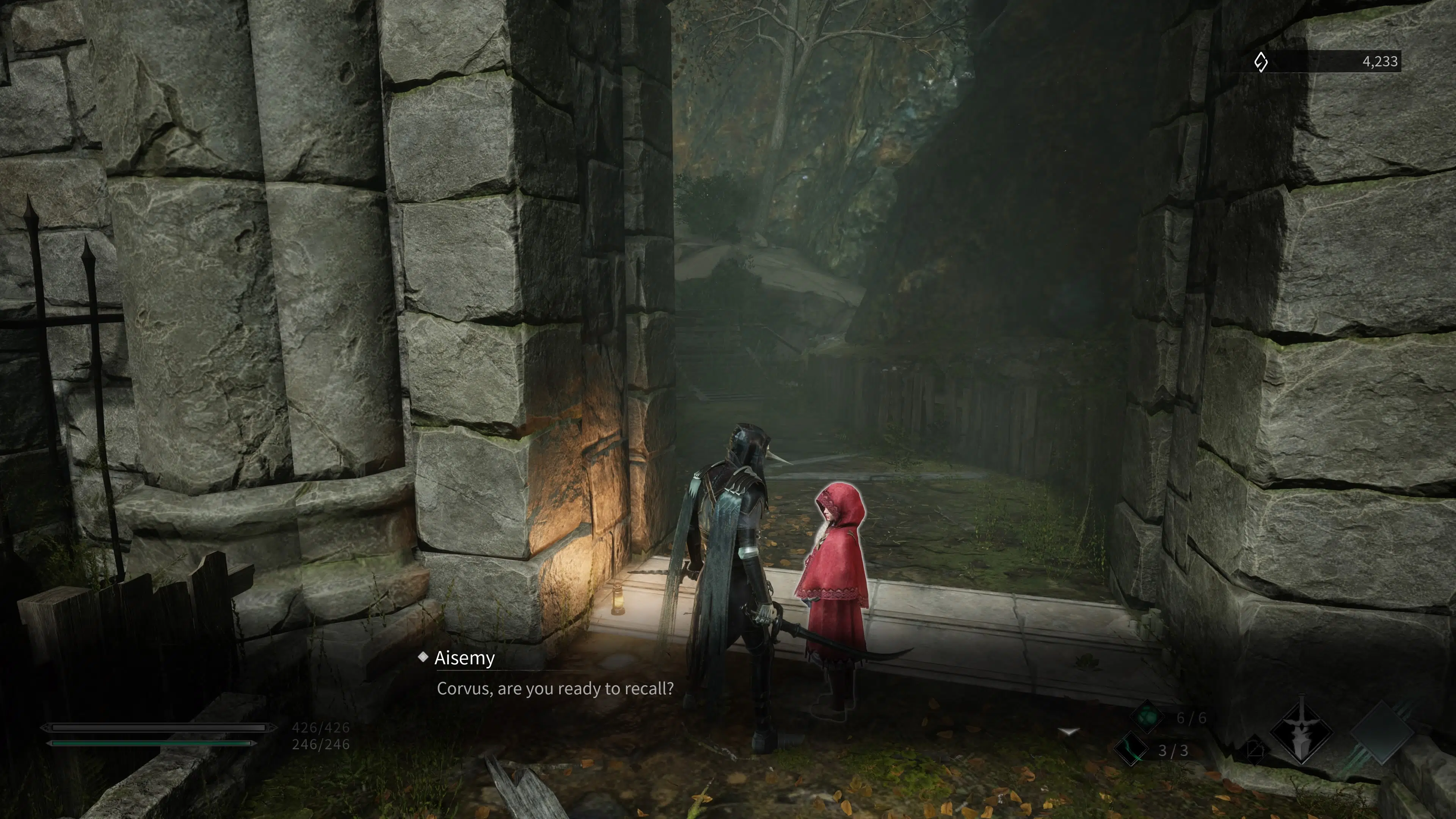
As you level up you can unlock talents that allow the player to customize how combat is going to go for them. For example, you can unlock a talent that heals you upon execution, or you can widen the window for successful parries. Parrying doesn’t stun enemies like in other Souls games; instead it also wounds the enemy. It creates a good push and pull with offensive and defensive playing that keeps every encounter fresh. Some enemies will have an unblockable attack that has a visual and audio cue. If you hit them with a feather dart at the right time this will reset their counter meter, and also stun then for a brief moment to get some extra hits in.
The more talents unlocked, the more survivable Corvus becomes. By the end of my playthrough, at level 26, I hadn’t even come close to unlocking or trying everything. Additionally, the game allows you to make changes as needed if a certain talent isn’t working as you had hoped. You can rest at a nearby active beacon (think bonfire) and respec. You can either respec all of the unlocked talents or a specific tree. It really allows for trial and error and doesn’t lock you into any particular playstyle.
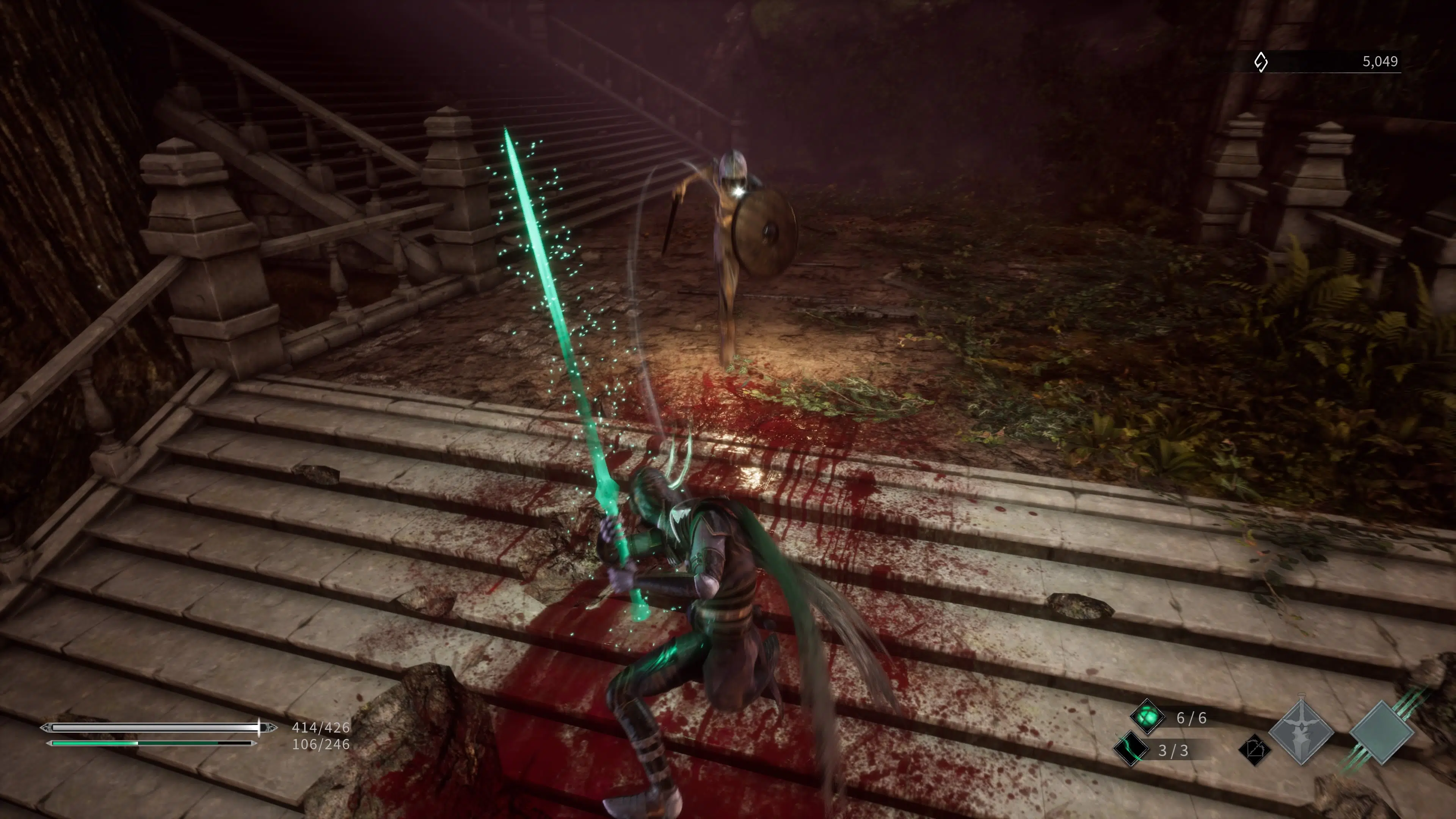
Another great addition to the combat are “Plague Weapons”. Essentially as you encounter enemies that use certain weapons, you can learn how to use that weapon as well. The more of any respective weapons shards you pick up, the more you can level up that plague weapon. Plague weapons are tied to an energy meter that depletes with each use of a plague weapon, and you can unlock talents that give you back more energy with either hitting or deflecting the enemies. Leveling them up afford less energy cost to use, and in some cases give a crowd control move by double tapping the respective button. Thymesia also gives you the ability to use your predator claw which pulls the plague from an enemy and their weapon for a one-time-use plague weapon.
All of these methods and combinations keeps the combat fresh and allows you to try different things without committing to anything, and feeling like you’ve leveled up your character wrong — Great stuff!
Another aspect of any given Soulslike is the level design. Here is where I consider Thymesia a “Souls-lite.” There are only four levels in the game called “Recalls” or memories, explored through the main mission, and then three of the four have submissions (the last “level” is really just a beacon and a boss arena so there are actually only three levels). The submissions will take you to other parts of the level while previously visited areas will be blocked off. None of them are particularly long but they do wrap around and you can unlock shortcuts to make getting around them faster. The levels are varied from each other, but none of them were particularly visually striking. They’re serviceable, at the very least.
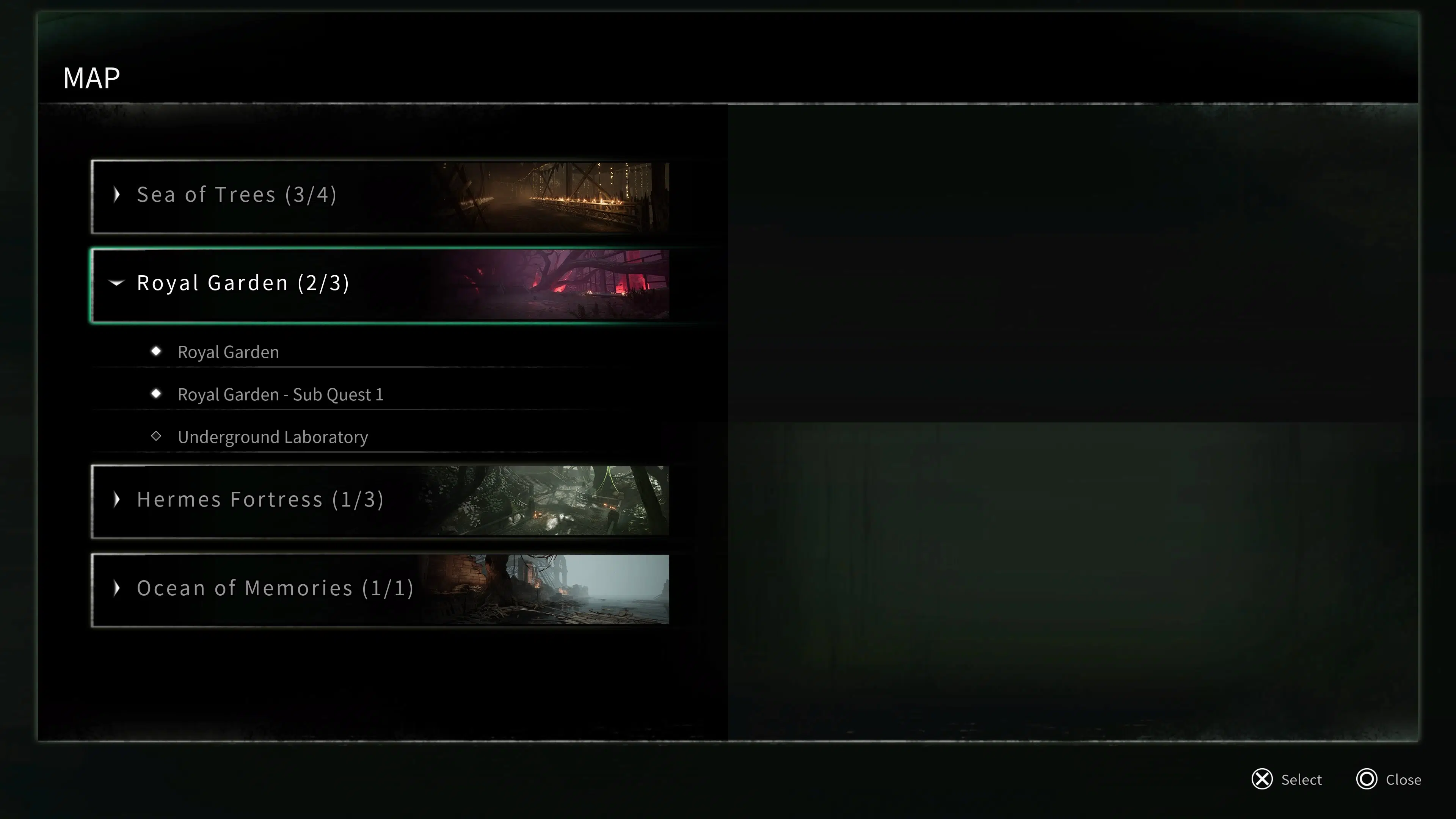
Absolutely no Soulslike would be worth its salt without boss fights. Here is another area in which Thymesia shines. There are eight in total, each with their own unique moves and arenas. I still haven’t beaten them all. One in particular has a talent for kicking my ass in her second phase, but they’re all memorable and leave a strong impression and a few deliver that rush that only a hard fought victory can provide.
Enemy variety is another weakness of the game. They’re are only a handful of enemy types usually defined by what weapon they use, with only a few standouts that are almost like mini-bosses. They do more damage, take more damage, and don’t respawn once they’ve been beaten. Unfortunately even these repeat fairly often.
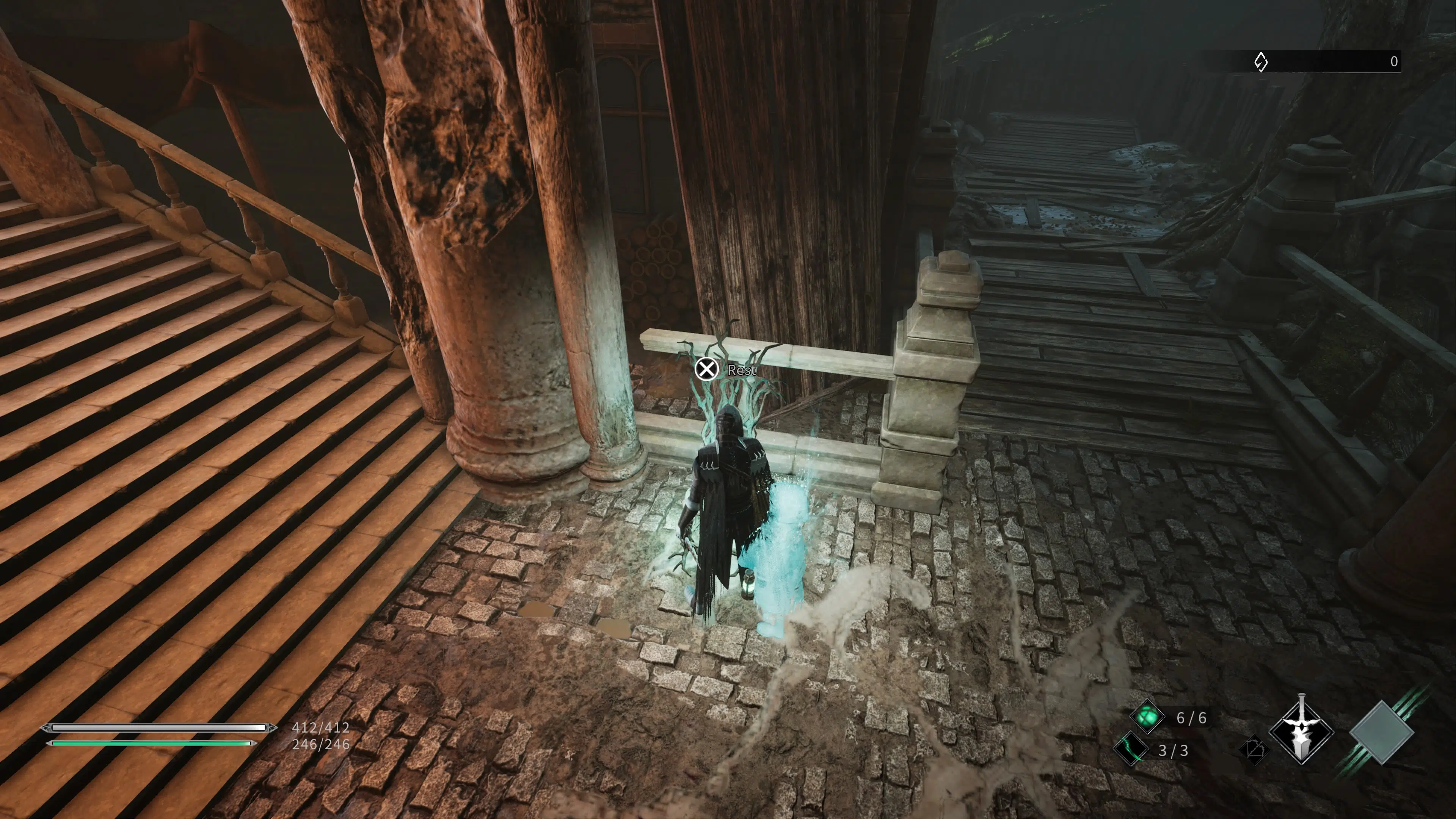
All in all, Thymesia does a good job scratching that Soulslike itch but providing rewarding, robust combat and memorable boss fights. While it doesn’t nail everything, what it does right elevates it towards the top of the subgenre. And considering the game was made by a team of seven people, that is no small feat. I would love to see what Overborder can do with a larger support team and bigger budget. Thymesia is the real deal.
Score: 7.5/10
Pros:
- Excellent, robust and fresh take on Soulslike combat
- A leveling up system that allows the player to change and respec as needed
- Fun, memorable bosses
Cons:
- The small amount of levels available are serviceable if not memorable
- Lack of enemy variety
- I didn’t care about the story with how it’s presented
Thymesia review code bought for review purposes. Version tested PS5. You can read MP1st’s review and scoring policy right here.
